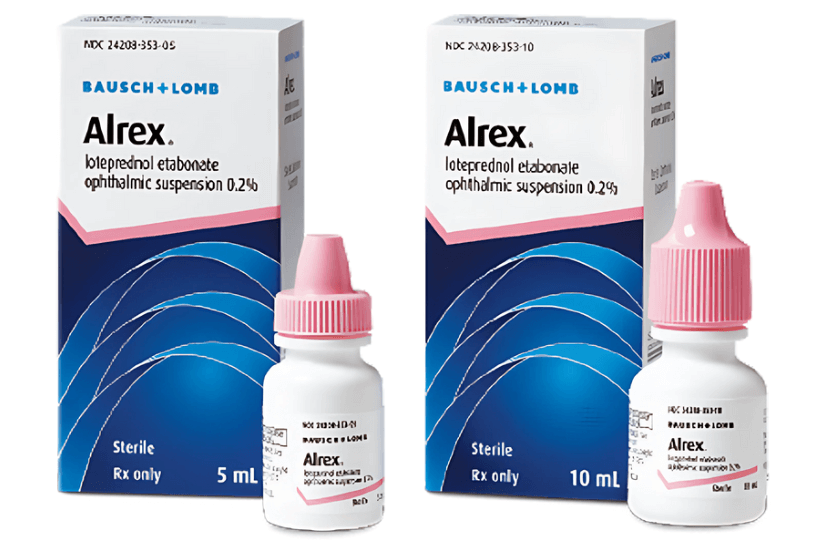Alrex (generic name: loteprednol) is a
corticosteroid medication used to treat
seasonal allergic conjunctivitis, an inflammation of the conjunctiva caused by allergens. It works by suppressing the release of substances in the body that cause inflammation, such as prostaglandins and leukotrienes.
Alrex may also be used
off-label for mild cases of uveitis, but only under a doctor’s supervision. As a topical eye drop, it targets the affected area directly, reducing swelling, itching, and redness. This drug is part of the
ophthalmic corticosteroid class, offering a localized treatment option with minimal systemic effects.
Dosage
The typical dosage for Alrex is one to two drops in the affected eye(s) four times daily. Shake the bottle well before use. To maintain its efficacy, the medication must be administered at evenly spaced intervals. If a dose is missed, administer it as soon as remembered unless it is close to the next scheduled dose. In such cases, skip the missed dose and resume the regular schedule. Do not double-dose to make up for any that were missed.
Storage
Store Alrex at a controlled room temperature between 15°-25°C (59°-77°F). Keep the bottle tightly closed when not in use to avoid contamination. Do not freeze. Protect the medication from excessive heat and direct sunlight. Always check the expiration date before use and dispose of the product if it has expired. Get more advice about safe drug storage here.
Common Questions About Alrex
Is Alrex safe for long-term use?
Prolonged use may increase the risk of elevated intraocular pressure and cataracts. Use it as prescribed and follow up with your doctor regularly.
Can Alrex be used with contact lenses?
Contact lenses should be removed before application and reinserted after at least 15 minutes to prevent contamination of the lens.
How does loteprednol differ from other corticosteroids?
Loteprednol is designed for localized use, with reduced systemic absorption, minimizing side effects compared to systemic corticosteroids.
This text is for informational purposes only. Please consult a doctor or pharmacist before using any medication.
Read the information leaflet that comes with the medication.
Most people who use Alrex do not experience any adverse side effects. Doctors prescribe this medication because they assess the benefits of such treatment outweigh any likely unwanted effects.
Some of the side effects that have been reported include blurred vision, dry eye, increased sensitivity to light, and mild eye discomfort.
If a sudden allergic reaction (anaphylaxis) occurs after applying Alrex, with symptoms like swelling of the face, tongue, or throat making it difficult to breathe or swallow, or there is wheezing, hives, rash, blistering, or peeling of the skin, call a doctor or 911 right away, or go to an emergency room immediately.
Not all side effects are listed here. If these or other unlisted symptoms persist or worsen, consult a healthcare provider or pharmacist.
Alrex is FDA-approved for the treatment of seasonal allergic conjunctivitis, characterized by symptoms such as eye redness, itching, swelling, and watery discharge. Off-label, it may also be used for other forms of eye inflammation, such as mild uveitis or post-surgical inflammation, though this requires a physician’s recommendation. Other potential symptoms it addresses include light sensitivity and eye discomfort due to inflammation.













